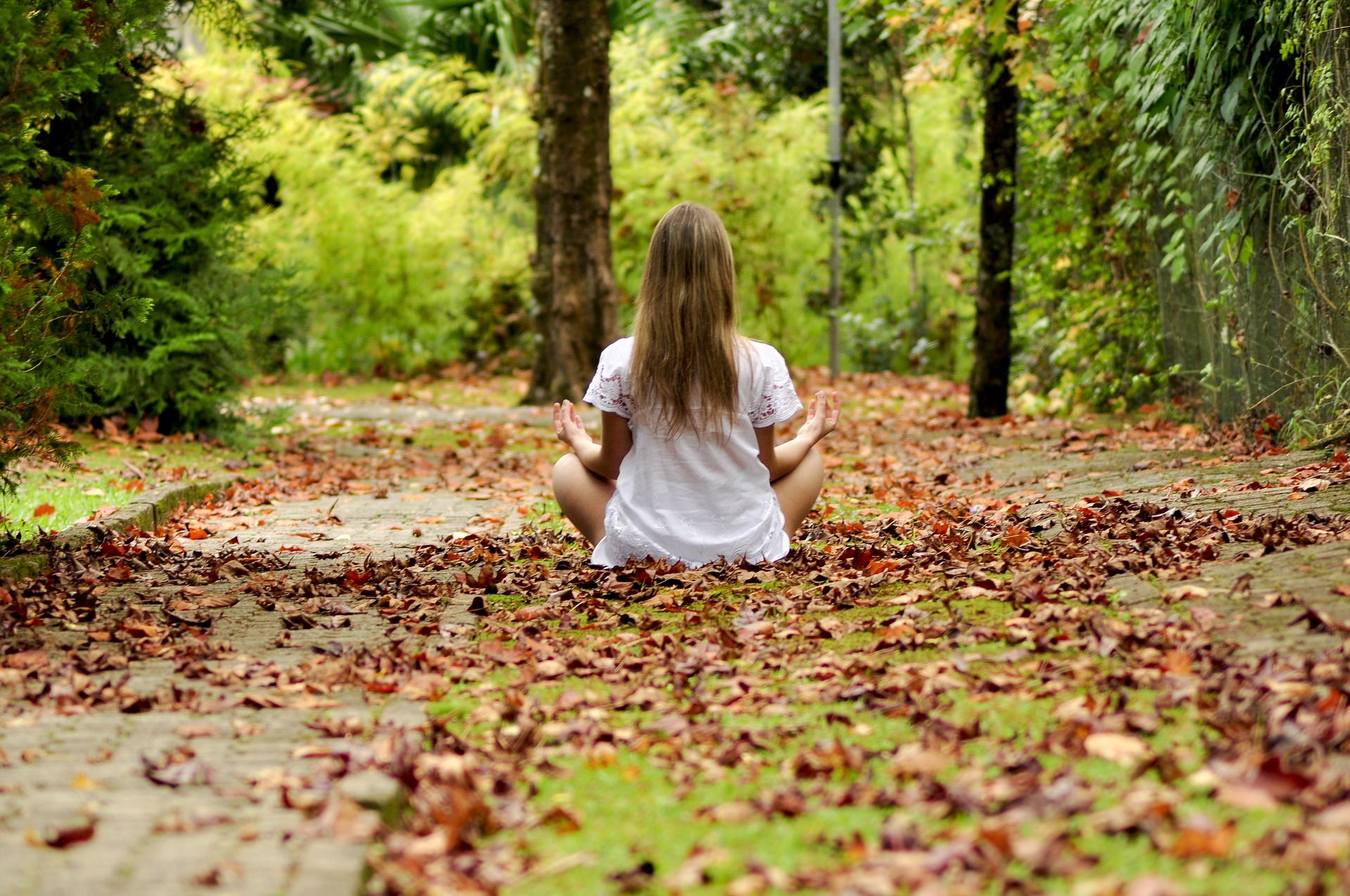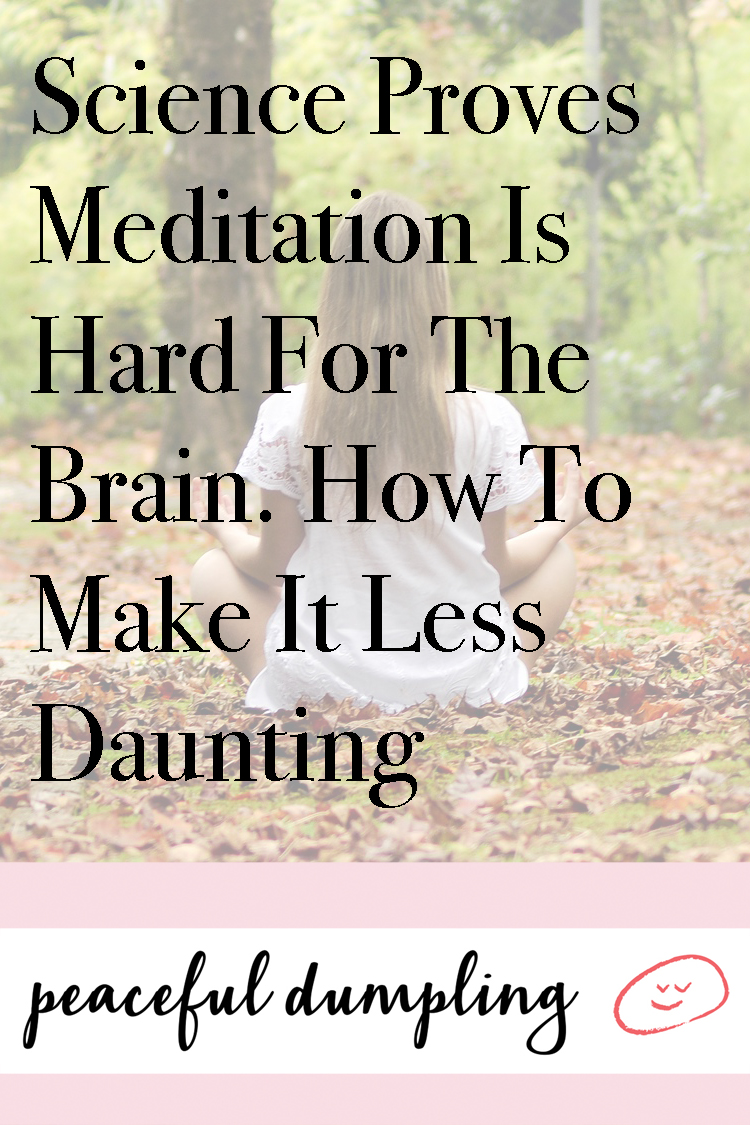As a meditation teacher, by far the most common complaint I hear about meditation is “I can’t meditate, it’s just too hard.”
Many people come to the practice determined to find peace and joy but instead, all too often meditation becomes a battleground, with each minute feeling like an hour to be struggled through. People feel bored, uncomfortable and often terrified to sit alone with their own thoughts. So why for so many, is a practice said to cultivate inner peace, so hard?

At its core, meditation is a means of training the mind. In exactly the same way as we exercise to re-shape our bodies, when we meditate we are reshaping our brains. But just like we resist hitting the gym because it’s far more comfortable to lie on the sofa in our pajamas, our minds are also far more comfortable doing what they are used to doing… being stimulated. Our brains have actually evolved to reward us for exposure to stimulation.
Every time we experience something new, our brains release a hit of dopamine (the happy hormone) to the frontal lobe. Some biologists have theorized that our brains actively reward us for constantly obtaining new information because doing so has survival value, as we pass on intelligence to the next generation and so on. In our increasingly technological world, meditation is likely to seem even more challenging than it might have been as the regularity with which we receive dopamine hits from stimulation becomes ever more frequent (some studies have shown that receiving “likes” and “comments” can give users the same feel-good effects as cocaine or opioids).

When we meditate in stillness and silence, we are actively depriving our brains of stimulation. Based on brain scans, neurologists discovered that when the human brain is not stimulated by external stimuli, brain areas related to processing emotions, recalling memory, and thinking about what’s to come become quickly active–our brains start to create their own stimulation. This is what we all tend to experience in meditation, as thoughts of past, future and indeed present flood in unstoppably and often randomly.
Tying this together, what we learn is that when we meditate and attempt to focus our minds rather than just allow random wandering and without any external stimulation, we are asking our brain to go against its default mode of operating. More than that, many studies have shown that meditation causes the brain to undergo actual physical changes, such as increased cortical thickness, increasing gray matter and the enlargement of the hippocampus. So perhaps the simplest way to understand this all is that when we meditate, we are literally experiencing growing pains. So from a purely scientific perspective, most of my students are indeed right. All things considered, for the untrained mind, meditation is indeed pretty hard!
So why do so many enlightened masters profess that meditation is, in fact, the simplest of human acts? I believe that beyond biology and technology, there is something deeper at play that means when we understand the true nature of meditation, we can no longer see it as hard.
Earlier this year, I spent three weeks living in a Buddhist monastery. Most of the time was spent in silence and we meditated for upwards of 6 hours a day. For the first week, I struggled immensely. I kept waiting for the everlasting feeling of peace and serenity to fall upon me, washing away my worries, fears, and anxieties. Instead, I struggled through every sit–my mind full to the brim with thoughts and my body uncomfortable. I couldn’t understand why meditation “wasn’t working” for me and why it seemed to work so well for everyone else! Until one day, one of the nuns said something so simple and so profound that it changed my meditation practice forever–“meditation is a practice.”
In that moment, I understood. Meditation wasn’t some state to be achieved, a tool to get you somewhere or a magic pill to take away all your woes… it was a practice! After that, it wasn’t so much that meditation itself got easier, but rather all the blocks I had to experience its joys began to slowly crumble away. I began to let go of my desire to reach a certain state through meditation, I released my insistence that meditation should feel peaceful and enjoyable and I surrendered my envy for those who could sit through an entire morning’s meditation without so much as a wriggle. I no longer expected it to be easy, enjoyable or profound–I just practiced. Each breath became a chance to try again, my meditation mat became a playground, a space to explore what it felt like to be present, releasing any ideas of what that presence “should” look like. I understood that meditation was only “hard” in so much as I wanted it to be something other than it was but when I accepted it for what it was there was no hard, no good, no bad, there was simply the moment.

So the next time you sit down to meditate, perhaps it would serve you to remember that meditation is a practice. Both neurologically and spiritually, when we meditate, we are growing, transforming and stepping into the unknown. We are learning new skills, creating new neural pathways and letting go of that which we knew to be true. And we can either see that as hard or we can see it as the simplest and most natural of human acts – growing. As Yongey Mingyur Rinpoche writes “Meditation is really quite simple. All we have to do is embrace each experience with awareness and open our hearts fully to the present moment.” And in truth what other choice do we really have?

Have you ever struggled with meditation?
Related: This Sa Ta Na Ma Kundalini Meditation Clears Your Subconscious For A Fresh Start
Can’t Sit Still? Find Sublime Bliss & Calm With These 5 Meditation Alternatives
3 Ways Meditation Dramatically Improved My Life Quality
Get more like this—Sign up for our daily inspirational newsletter for exclusive content!
__
Photo: Oscar Keys, Jacob Ufkes, and Ractapopulous via Pixabay.com
